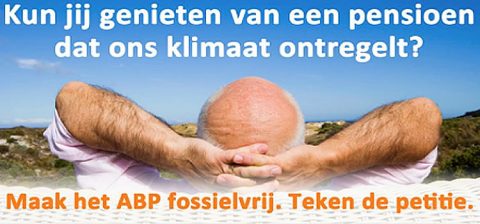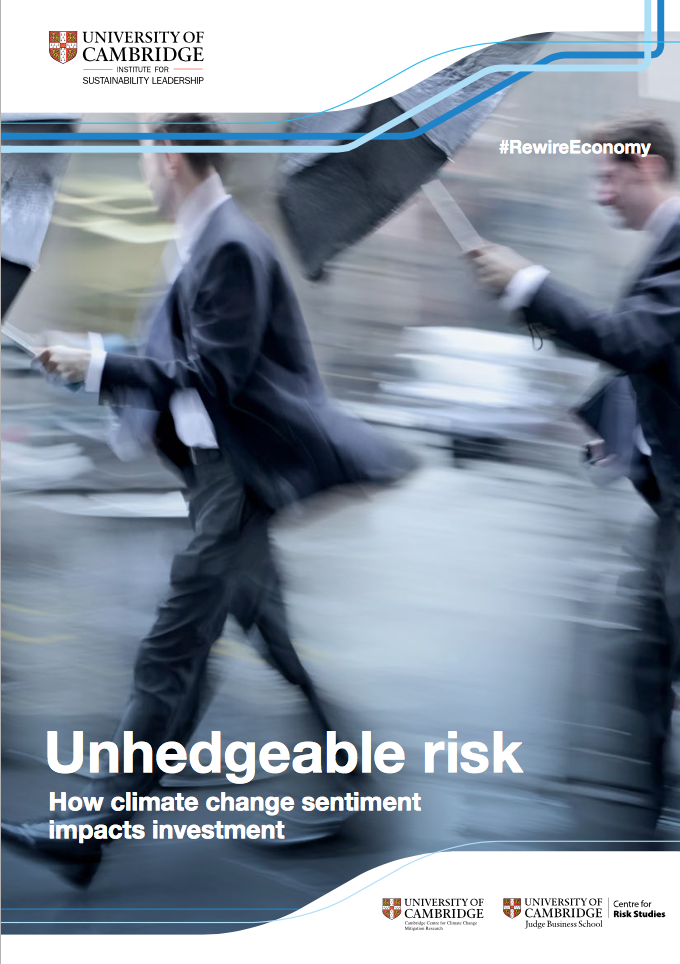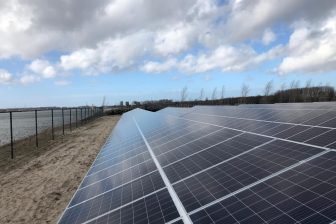
‘ABP heeft met fossiele beleggingen 9 miljard dollar verspeeld’
17 november 2015 – Fossiele beleggingen zijn niet alleen ongewenst omdat ze de verduurzaming van de energievoorziening dwarszitten, het blijken financieel ook nog eens slecht te scoren. Zo zou het ABP maar liefst 9 miljard dollar verspeeld hebben op zijn fossiele investeringen. Dat stelt althans 350.org, een beweging tégen fossiele investeringen.
Interactieve tool: Decarbonizer
Uit een persbericht van de Nederlandse afdeling van 350.0rg (met excuses voor het kromme en niet al te duidelijke Nederlands)
‘(…) Corporate Knights, samen met 350.org en South Pole Group, hebben de Clean Capitalist Decarbonizer gelanceerd, een interactieve tool die gebruikers laat berekenen wat de financiële impact is door te divesteren uit fossiele brandstoffen. Door deze unieke tool te gebruiken, heeft Corporate Knights de investeringen van 14 fondsen geanalyseerd die samen meer dan $1000 miljard bezitten, inclusief de Gates Foundation en ABP. Conclusie: de totale verliezen van de afgelopen drie jaar zijn meer dan $22 miljard geweest. Het pensioenfonds ABP blijkt maar liefst 9 miljard te zijn misgelopen door fossiele investeringen. Campagne groep ABPfossielvrij voert de afgelopen 2 jaar een publiekscampagne om het ABP te bewegen haar investeringen in kolen, olie en gas te verkopen. (…)
De analyse omvatte de recentelijk bekendgemaakte bezittingen van 14 grote fondsen om te voorspellen wat hun potentiële financiële impact is als ze hun investeringen van kolen- en oliemaatschappijen en andere CO2-intensieve sectoren naar bedrijven die tenminste 20% van hun inkomsten uit groene markten of nieuwe energie. Daarna werden de totale inkomsten berekend over een periode van drie jaar, te beginnen bij 1 oktober 2012. (…)
“Deze analyse toont duidelijk aan dat investeringen in kolen, olie en gas niet alleen schadelijk zijn voor ons klimaat, maar dat deze ook een groot financieel risico vormen voor het pensioen van ABP deelnemers” zegt Vatan Hüzeir, een van de initiatiefnemers van ABPfossielvrij. “We hopen dat het ABP de resultaten van deze studie serieus neemt, transparenter zal zijn over hun verliezen door hun investeringen in de fossiele industrie en zo snel mogelijk de keuze maakt voor een fossielvrij beleggingsportfolio.”
“De analyse van 14 grote fondsen, gebaseerd op de beschikbare data, heeft aangetoond dat koolstof-intensieve investeringen $22 miljard aan verloren inkomsten kosten. Hoewel de beperkte publicatie van data de precisie van de analyse vermindert, is de conclusie eenduidig: het decarboniseren van de portfolio levert een altijd betere financiële uitkomst op,” zegt de CEO van Corporate Knights, Toby Heaps. “Dit verklaart waarom een groeiende groep investeerders hun dollars inzetten voor minder vervuiling en meer groene oplossingen.” (…)’
Uit een bericht van Corporate Knights (‘The Magazine for Clean Capitalism’)
‘(…) In the analysis Corporate Knights released today, which examined 14 major funds with a collective $1 trillion in assets, we found that over $22 billion dollars had been sacrificed as a result of not shifting out of fossil fuels into clean energy stocks three years ago. Contrary to the conventional wisdom, divesting out of fossil fuels in favour of clean energy has been a huge money-maker.
Oil and coal prices may recover somewhat over the next several years, but make no mistake – the global economic shift away from declining fossil fuel industries toward the rising clean energy economy is already underway. Investors who fail to grasp this reality will do significant financial harm to the people who have entrusted them with their savings. (…)
The Clean Capitalist Decarbonizer powered by carbon data from South Pole Group shows the financial implications of divesting fossil fuel companies in favour of those that derive at least 20 per cent of their revenues from environmental markets or new energy. (…)’
Over de Decarbonizer Investment Tool
‘(…) Decarbonizer is new to the finance party and is disrupting the scene. The first planetary investment tool that adds another dimension to investing. Simple to use and with instant results, it answers the question – ‘Does it pay to decarbonize?’ Decarbonizer doesn’t judge, so why not see if you’re leaving money on the table? (…)’
> Start the tool
Met een willekeurige uitkomst van de tool:
‘(…) You could have made an extra US$ 81,250 if you had invested in this strategy 3 years ago. Less pollution + more solution = better returns(…)’
Onderzoek University of Cambridge
Een heel andere benadering volgt een onderzoek van de University of Cambridge. Het laat zien hoe investeerders reageren op klimaat-gerelateerde informatie.
Uit een bericht van Fossil Free over het onderzoek
‘(…) Numerous fossil fuel divestment campaigners have pointed to the stock markets lately to tell trustees that they are losing significant funds by not divesting. It’s true; fossil fuel stocks have lost 30 cents on the dollar in the last 21 months alone. That translates to big money when looking at large institutional investor portfolios like pension funds and school endowments. (…) A recent report by the University of Cambridge detailed the material risk of climate change to investment portfolios and found that, “Short-term shifts in market sentiment induced by awareness of future climate risks could lead to economic shocks and losses of up to 45 percent in an equity investment portfolio value.”(…)’
Uit een bericht van de University of Cambridge
 ‘(…) A new report by the University of Cambridge Institute for Sustainability Leadership (CISL) reveals that global investment portfolios could lose up to 45 per cent as a consequence of short-term shifts in climate change sentiment. The report, “Unhedgeable Risk: How climate change sentiment impacts investment”, concluded that about half of this potential loss could be avoided through portfolio reallocation, while the other half is “unhedgeable”, meaning that investors cannot necessarily protect themselves from losses unless action on climate change is taken at a system level.
‘(…) A new report by the University of Cambridge Institute for Sustainability Leadership (CISL) reveals that global investment portfolios could lose up to 45 per cent as a consequence of short-term shifts in climate change sentiment. The report, “Unhedgeable Risk: How climate change sentiment impacts investment”, concluded that about half of this potential loss could be avoided through portfolio reallocation, while the other half is “unhedgeable”, meaning that investors cannot necessarily protect themselves from losses unless action on climate change is taken at a system level.
“This new research indicates that no investor is immune from the risks posed by climate change, even in the short run,” said Jake Reynolds, Director, Sustainable Economy at the Cambridge Institute for Sustainability Leadership. “However, it is surprisingly difficult to distinguish between risks that can be addressed by an individual investor through smart hedging strategies, and ones that are systemic and require much deeper transformations in the economy to deal with. That’s what this report attempts to do.” While existing studies have analysed the direct, physical effects of climate change on long-term economic performance, this new report, commissioned by CISL and the Investment Leaders Group, looks at the short-term risks stemming from how investors react to climate-related information, from policy decisions and technology uptake, to market confidence and weather events. (…)’
Bronnen
Nederlandse afdeling 350.org, 17 november 2015: Fossiele investeringen kosten pensioenfonds ABP 9 miljard (mailbericht, geen URL opgegeven)
Corporate Knights, 16 november 2015: What kind of world do you want to invest in?
Decarbonizer Investment Tool
Fossil Free, 16 november 20156: Why fossil fuel stock prices are doomed
University of Cambridge, 12 november 2015: Climate change sentiment could hit global investment portfolios in the short term
Rapport: Unhedgeable Risk: How climate change sentiment impacts investment (pdf, 60 pag.)
Illustratie boven: Actie ABP Fossielvrij (350.org)




